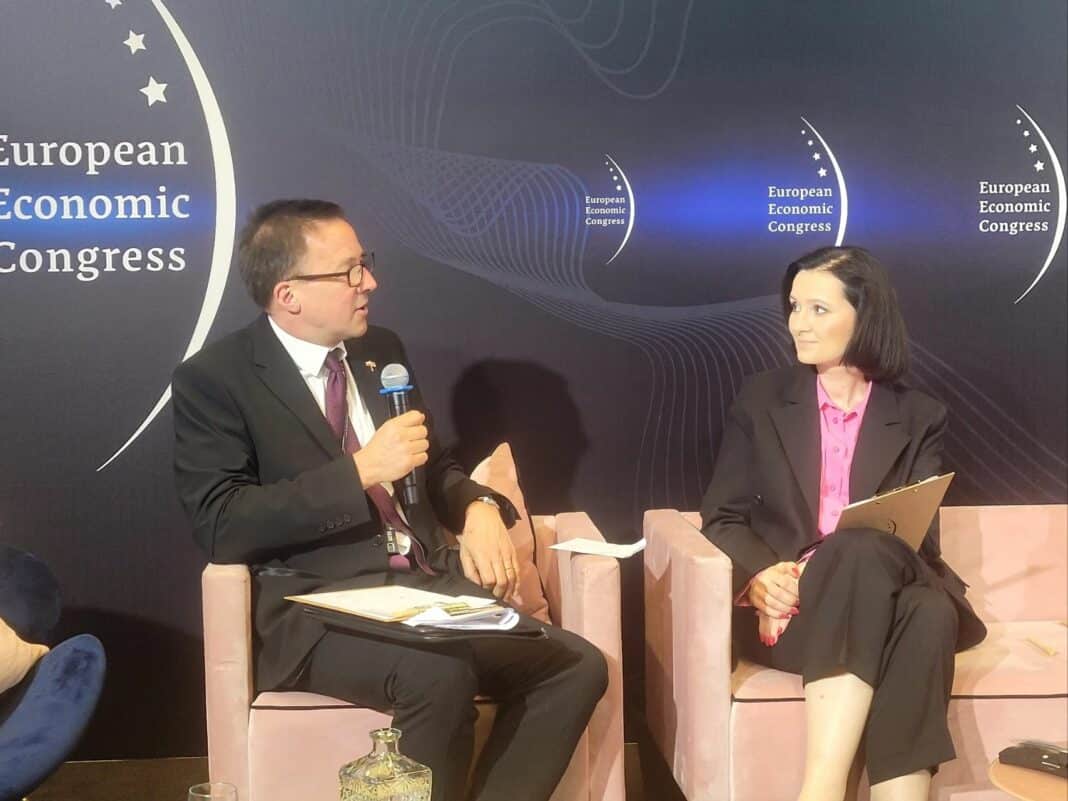Anglo-Polish relations date back as far as the 11th century, when the first contacts were made during the reigns of King Ethelred II the Unready and Bolesław I the Brave.
Things have moved on since then. With trade turnover having grown systematically since the 1990s, the UK is now Poland’s third most important trade partner.
Collaboration between Poland and the UK has strengthened since 2004 when Poland joined the European Union and the UK was among the first EU members to open its labour market to Polish citizens.
After the global financial crisis of 2007–9, both Poland and the UK supported efforts made to strengthen the European economy. Shortly afterwards, the UK became the second biggest export market for Polish goods and services. Currently, there are about 60,000 businesses established by Poles operating in the UK. Poland also receives vital British foreign direct investments (FDIs). The value of British FDIs in Poland is more than €10 billion, making the UK the sixth largest investor in Poland.
British exports to Poland have doubled since 2006. Poland and Britain cooperate in a number of areas, including innovative technologies, digital economy, fintech, support of the service sector, scientific exchange between Polish and British universities, especially in the area of research and development, and the exchange of experiences in support of small and medium enterprises.
Aneta Jóźwicka, director of the British-Polish Chamber of Commerce, stressed that Brexit is already a historical process, which from the perspective of companies began to take place when the British voted for the UK to leave the European Union.
During the European Economic Congress in Katowice, the participants of the Polish-British Economic Cooperation debate discussed Brexit-related challenges for Polish-British economic relations.
Chris Burton, UK Commissioner for Trade with Europe, stressed the importance of removing legislative barriers to trade between the UK and Poland after Brexit.
From the perspective of companies from the IT business, investment opportunities in the UK relate primarily to the banking sector.
Grzegorz Oszast, member of the board of the Polish Investment and Trade Agency, said that Poland should strive to strengthen relations with the UK despite Brexit.
Last year, trade between Poland and the UK increased by 26%. The UK is a huge market in terms of investment in tech industries, reaching £3 billion.
Andrzej Pośniak, managing partner and head of the tax practice in Poland and Central and Eastern Europe, emphasized that Poland has strong economic ties with the UK, whose economic condition still has a direct impact on the Polish capital market.
Nick Lakin, Corporate Director of Kingfisher Group (Castorama) noted that Castorama is the largest British company in Poland, employing 13,000 people. In addition, Polish companies are subcontractors for Castorama and produce furniture for the needs of the company for markets throughout Europe. “While Brexit is irreversible over the next decade, economic relations are positive,” added Nick Lakin.
“From the perspective of brands such as BP, Brexit did not have a direct impact on the fuel industry, which operates regionally,” said Bogdan Kucharski, BP representative in Poland.
The complicated Polish legal system is still a barrier for British companies, said Joźwicka. “However, these barriers and inconveniences do not make UK companies abandon the Polish market. A great advantage of Poland is well-trained staff,” she said.

